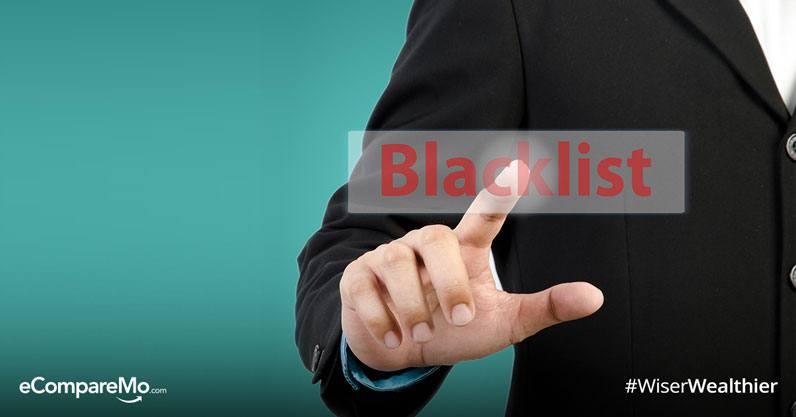So You’ve Been Blacklisted By The Banks. What Now?
2 min readWe’ve all been through financial hardships, one way or another. While some of us were able to get out of the financial quagmire, others raised the white flag and defaulted their loans. With bad financial records and poor credit history, that person joins the ranks of others on the “blacklist.†In case you find yourself in this harrowing limbo, what are the things you can do?

Defining “blacklist†and the process of becoming blacklisted
In the world of finance, a “blacklist†is a list of individuals and groups who defaulted their debts after a series of nonpayment. When a person’s name enters the “blacklist,†it becomes harder for that person to apply for financial services from banks.
Read: (Remember These Six P’s Of Bank Loans And You’ll Never Get Wrong With Loans Again)
How does a person become blacklisted? The main reason financial institutions deny credit facilities to borrowers is their murky history. Factors that contribute to bad credit history include existing unpaid debts, poor credit payment, and loan default.
A person’s credit record, which is handled by credit bureaus, becomes available to banks affiliated with the said bureau. When a person applies for a loan, banks will pull that person’s credit record. Once your records reveal your spotty credit history, banks will not hesitate to reject your application because you are not creditworthy.
How can you get out of the “blacklist�
Fortunately, a person with bad credit history can redeem himself from his previous actions. While the path will not be easy and the process is a lengthy one, there is only one way to repair your bad credit and remove your name from the “blacklistâ€:
Pay your dues and get a certificate of full payment.
If you have outstanding loans and you want to clear your name for good, the best thing you can do is to pay off your debts and clean your record. If you want to settle your balance under more favorable terms, you have to speak to the bank to negotiate lower interests and better payment terms. Once you’ve finally dealt with your loans, ask the bank to issue a certificate of full payment, which will come in handy once you apply for financial services in the future.
Read: (Three Personal Loan Application Tips That Will Make It Hard For Creditors To Say No)
Unfortunately, there is no national credit agency that will serve as a universal credit database for all financial institutions in the Philippines. In the absence of a centralized credit bureau, the risks involved in lending are higher and it makes the market for financial products and services very limited.
In the end, the only way to get out of the “blacklist†is to settle all your debts. While such list does not exist, your bad credit record will prevent you from availing of loans and other banking products in the future.
